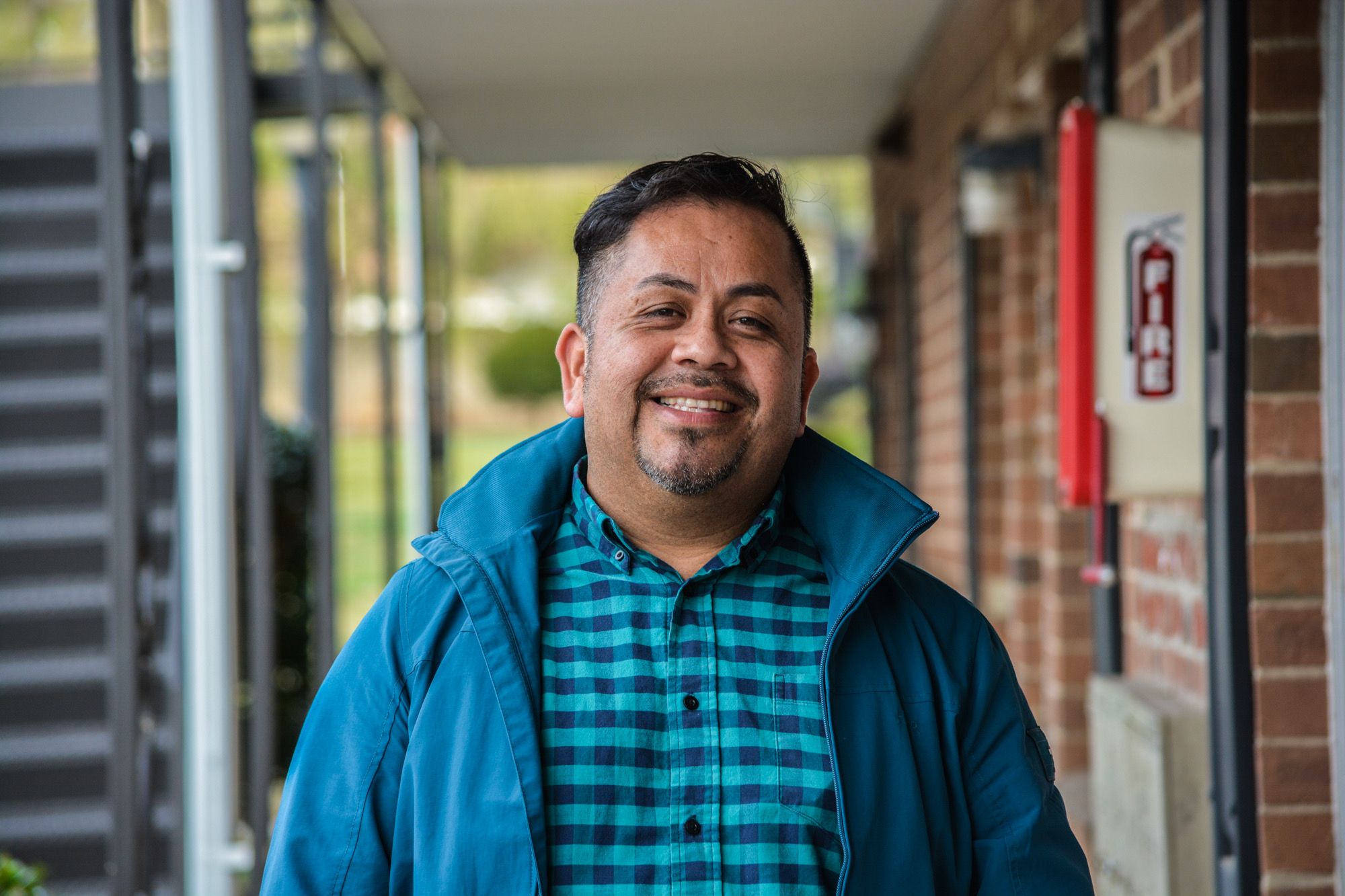
Ivan Almonte, senior Durham community organizer and Hispanic activist, spoke on how DPS bus and school cancellations have impacted immigrant families. Photo by Jules Thompson.
Tuesday, Feb. 20, 2024
By Celia Funderburk
In January, an unearthed “accounting error” by the Durham Public Schools (DPS) Board of Education led to strikes, walkouts and overall unhappiness with the city’s education system.
The board overpaid 1,300 employees for months, and now these “raises” are being taken away. School employees across the city are now protesting. As a result, DPS Superintendent Pascal Mubenga resigned on Feb. 7.
Additionally, school and bus cancellations have prevented students from receiving their provided breakfasts and lunches; parents can’t get their kids to school and work on time; and children are missing multiple days of class, delaying education.
Ivan Almonte, senior Durham community organizer, said he doesn’t want to diminish the struggle classified employees are facing, but no one is talking about the immigrants in this situation.
Jessica Lopez is a Mexican immigrant and a full-time mother of two 6-year-old daughters. Although the closures impact her daughters’ school, Lopez is still able to drive them to school and pick them up — a reality many do not have.
“I’ve read a lot of mom texts that say, ‘Look Jessica, I had to leave my job because they no longer allowed me to be late because I have to take my kids to school,’” Lopez said.
Other parents shared their stories with Lopez who need their salaries, so they can’t send their children to school and kids have to stay home alone.
Almonte is someone in the DPS system that immigrant parents can trust. He began to help immigrant families navigate the city’s school system in 2004, when parents of Riverside High School reached out because their children were running away after not feeling welcome.
Parents also struggled with the system because the staff wouldn’t help. Almonte said there weren’t many bilingual workers in the school and the staff was closed-minded.
“The reaction from the staff making comments like, ‘So why don’t you speak English?’” he said. “Or, ‘Maybe, she ran away because she has a boyfriend.’”
When parents had questions about what was happening with DPS recently, they turned to him. The hardest battle they faced was the lack of information in Spanish.
He held a Facebook live on Jan. 30 to let parents know the basic facts — specifically what schools would be closed the following day — through a community group called Respuesta Rapida.
“But people are like, ‘Why?’ ‘Who’s making these decisions?’ or ‘Who approves which schools will be closed?’or ‘What is going to happen?’ ‘So my kids will have absences?’ or ‘What if they don’t have school for two more days?’” he said.
Almonte wants the board to be transparent and take accountability for these mistakes, so he encourages immigrant parents to write letters to the board about the impacts on families.
One of these parents is Patricia Obregon. She is a Mexican immigrant who has lived in Durham for 17 years and is a mother of three children currently in DPS. She said the whole Durham education system is in a bad place and getting worse.
Obregon does not work and can drive her children to school when it is canceled, but she said there are many families in Durham who do not know how to drive and don’t have cars. Parents have to decide if they are going to send their kids to school through a different method, or if they aren’t going to work.
While she said parents agree with the teachers and workers’ fight for a fair salary, it is hard when the parents rely on the schools for their children’s care and provided meals.
Obregon said parents have so many questions, such as if these days of missed school are justified, and the schools aren’t responding to them.
She said DPS is providing the families with information too late, and she had to turn to a Facebook group composed of teachers called the Durham Association of Educators. On Sunday, Feb. 4, it was the first place that notified her that her children’s schools would be closed the next day.
But the page only provides updates in English. Obregon is not bilingual and cannot always read the necessary information.
Lopez also said there aren’t enough Spanish speakers in government departments. Community members encourage Lopez to speak at Board of Education meetings, but there is not always an interpreter. She has already been to two school board meetings this year and only one had an interpreter.
She said she wants more Spanish speakers in office positions and for them to engage with the community.
“I would like that from time to time, those people who are sitting at a desk go out and see the community,” she said. “Go out and know the needs because we, who are in these organizations, we know them and we see them daily.”
Not tailoring public information for the immigrant community’s consumption is another way that showcases how Durham is not always looking out for immigrants. The root of the problem is when decisions are being made in government, people aren’t being inclusive to Latinx, Almonte said.
He said the system is still broken.
“In my opinion, I don’t think white people deal with the same issues,” Almonte said. “It’s why we people of color have to fight hard to the bone to change things.”
Lesley Gonzalez contributed to reporting as a translator
Edited by Jessica Walker